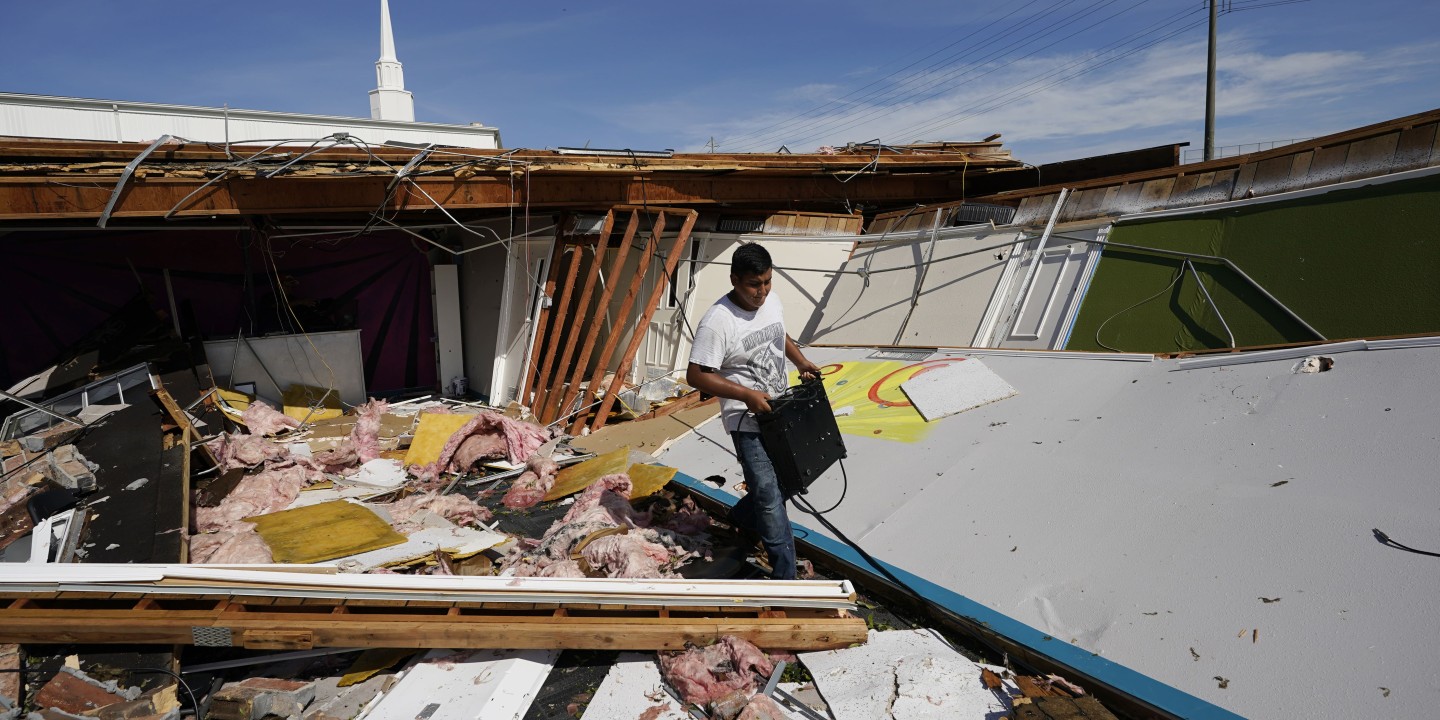Faith-based disaster relief groups get ready for Hurricane Laura

In recent months, Lara Martin’s life has been one disaster after another.
Tornadoes in Tennessee. Wildfires in California. A derecho in Iowa.
Now, Hurricane Laura.
“We’ve been busy,” said Martin, the interim director of US disaster response for the United Methodist Committee on Relief.
Martin spends much of her time on the phone, coordinating support for local emergency response teams of trained Methodist volunteers in different parts of the country. UMCOR has also spent the past few months distributing supplies such as flooding cleanup kits, masks, hand sanitizer, and other things needed to get the job done and keep people safe amid a pandemic.
At least four people were killed and hundreds of thousands of people left without power after Laura made landfall on the morning of August 27.
Faith-based disaster-relief groups such as UMCOR are often among the first to respond when disasters strike—cleaning up debris, providing shelter, handing out hot meals, and helping with long-term recovery.
That work hasn’t stopped, despite the challenges of the COVID-19 pandemic.
Sam Porter, national director for Southern Baptist Disaster Relief, expects as many as 20 response sites to be set up along the Gulf Coast to help after Hurricane Laura. Volunteer teams from Texas and Louisiana are all set to respond, he said, with chainsaw crews to clear debris, teams that can put on temporary roofing, and more than a dozen mobile kitchens.
Those kitchens will be providing as many as 100,000 meals a day.
In the past, those meals would have been distributed by Red Cross trucks driving through the community. With COVID-19 restrictions in place, the Baptists plan to set up drive-throughs at churches in the areas affected by the hurricane, handing out meals in clamshell containers.
“We’ll have a line of cars and get to work like Chick-fil-A,” Porter said.
For now, the Southern Baptists plan to rely on local volunteers rather than having people from out of state come to help. They hope college students from the area who are studying online rather than attending classes in person might be willing to help out as well.
Those outside the region can pray, Porter said—and give to disaster relief groups that can quickly get relief to people on the ground.
Right now, Porter said, Southern Baptist disaster relief groups have the supplies they need in place. But more may be needed. And funds are harder to come by these days with the ongoing economic crisis.
Martin also encouraged people to give. And to pray for those affected by the hurricane.
“Lots of folks are having the worst day of their lives,” she said. “Keep them in prayer.” —Religion News Service





